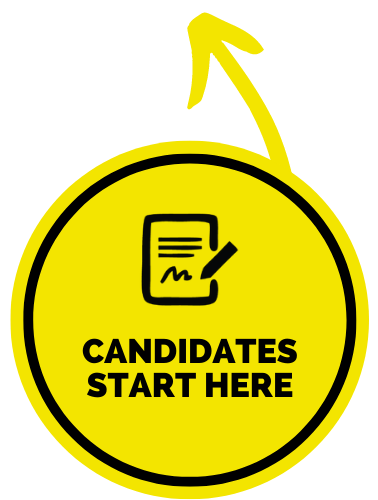
When searching for a job, almost everywhere you apply will want to carry out a background check before they hire. But why do they want this information and what information do they get from these checks? Here is a short guide on Criminal Background Checks and how they work in the recruitment process.
1. Why do companies want Criminal Background Checks?
Companies want to conduct Criminal Background Checks to make sure they’re protecting their business. Knowing about a candidate’s criminal history can prevent financial losses that occur from theft, fraud, and cybersecurity breaches. It also helps prevent any harm that a candidate with a history of violence could inflict on their current employees.
In most cases, these background checks come back completely clear without any issues. If there are red flags, however, it’s important that the employer knows about them before it’s too late. Just read about the narrow miss that our Managing Director, Sasha Knott, had when hiring. It’s better to be safe then sorry. As such, most companies will ask you to comply with this step to proceed with the recruitment process.
2. What information shows up on a Criminal Background Check?
This may vary from agency to agency. At Job Crystal, we verify Criminal Records through Afiswitch, the SAPS criminal fingerprint database. This searches through all criminal records and lets us know whether charges have been laid against the candidate. It also lets us know whether they have gone to trial or not. This determines their status relating to:
- Any pre-employment enquiries
- Corporate enquiries
- Statutory requirements
- Applications for Professional Driving Permits (PrDP)
- Registration with the Private Security Industry Regulatory Authority (PSIRA)
These records may range from petty charges, like breaking lockdown curfew and DUIs, to more severe crimes like assault or murder.
3. Does having a criminal record automatically disqualify a candidate from being considered for roles?
Not necessarily. It’s largely up to the discretion of the Recruiter, Hiring Manager, or company decision-makers. However, if they are being fair, they will assess the severity of the charges brought against the candidate first. The employer may overlook minor offenses so long as they don’t pertain to any of the specifications of the role. For more severe cases, the employer may decide outright based on the safety of the company and its employees. Otherwise, they may take into consideration the rehabilitation and previous references of the candidate.
Keep in mind that if there is something on your criminal record that you know will come out in a Criminal Background Check, being upfront with the Recruiter or company can do a lot towards showing that you are honest and trustworthy.
4. Does every candidate automatically have to have a Criminal Background Check done?
No, it’s illegal for any company or recruiter to complete a Criminal Background Check without a candidate’s express permission. Before the Criminal Check is ever conducted, the Recruiter or company will send out a consent form. This ensures concrete, secure proof of a candidates permission.
Keep in mind, if you don’t want the Recruiter or company to run a Criminal Check, they may not continue with your application. You have every right to refuse your consent, but this will reflect on your application. The company or Recruiter is making decisions about who to hire at every stage of the process. Refusing altogether may seem suspicious and may hurt your application.
In Summary:
You are in control of who gets to run a Criminal Background Check on you. Recruiters and companies are, however, paying attention to your actions at every step of the hiring process. They are not conducting these checks to be vindictive, but rather to ensure the safety of their company and employees. For the most part, these checks come back clear, so there is usually nothing to worry about. If there are charges on your criminal record, they will usually consider the severity of the charges. They may also consider your references from previous employers. Be upfront and honest about any charges before the check is conducted. This may help establish you as someone trustworthy, despite what the check says.










